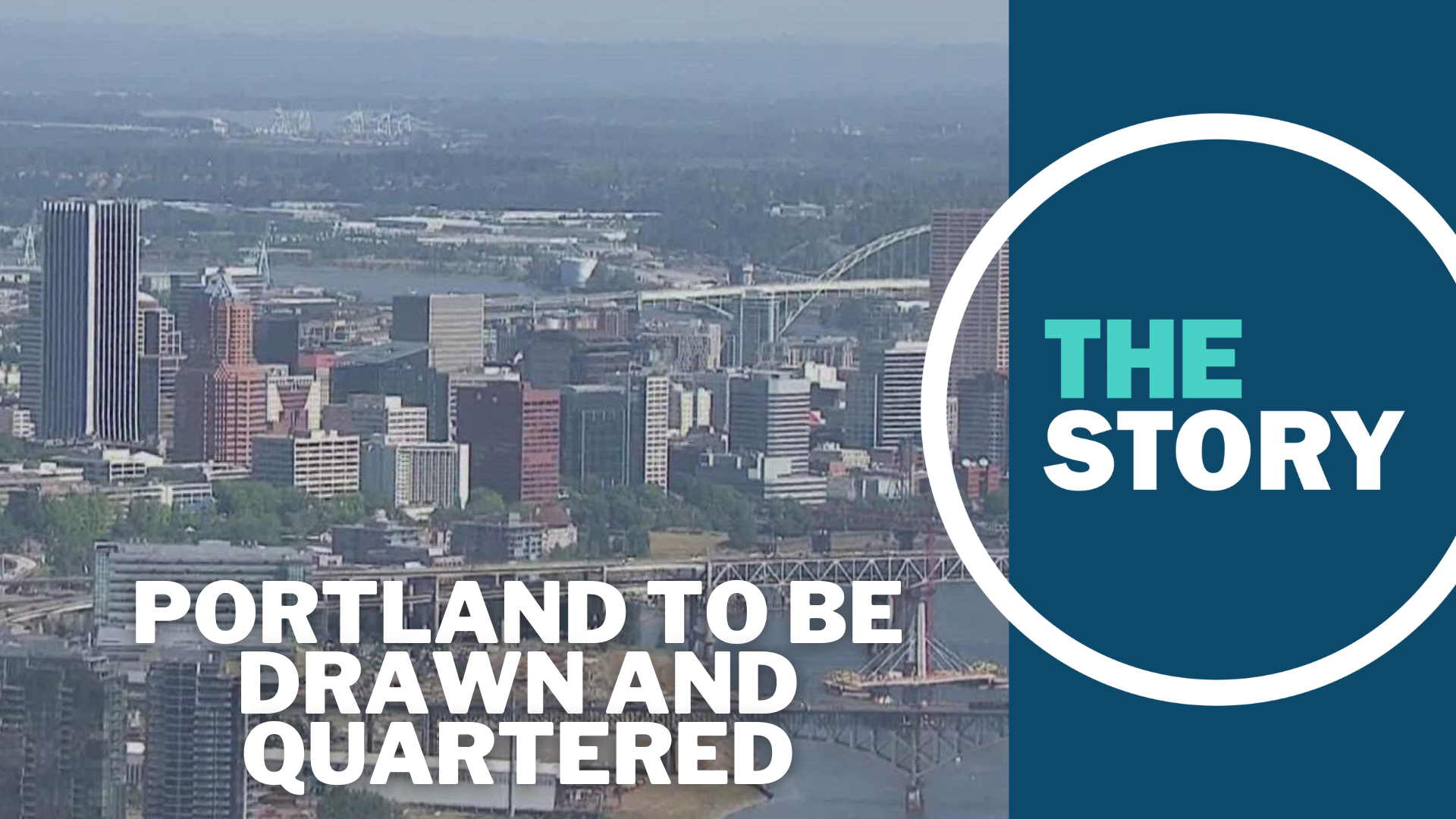PORTLAND, Ore. — Portland voters resoundingly approved a measure in the recent midterm election that would overhaul the city's form of government. Though most members of Portland City Council opposed the measure, they're now charged with ensuring that it gets implemented.
Measure 26-228 reforms the City of Portland charter; centralizing administrative power under a professional city manager overseen by the mayor. The city manager will be in charge of all the bureaus currently overseen by individual commissioners.
Under the reformed charter, city council will be in charge of drafting and passing policy instead of concerning themselves with the day-to-day operation of bureaus. Meanwhile, the council will be expanded to 12 members drawn from four city districts. Voters in each district will elect three councilors via ranked choice voting.
RELATED: Ranked choice voting is included in Portland's charter reform measure. Here's what that means
These reform elements do not go into effect right away. The first election under this model will happen in November 2024, with terms for the 12 newly-elected councilors beginning January 2025. Since the city manager must be appointed by the mayor and approved by council, that person likely won't be in place until sometime in 2025.
But for the current city council, one of the first tasks is to set up a 13-member districting commission with the authority to draw up geographic boundaries for the four equal districts. Right now commissioners are elected city-wide, so the districts don't exist.
The charter reform measure stipulates that Mayor Wheeler will appoint and city council will confirm members of the districting commission, and they must be Portland residents who represent a diversity of race, gender, age and geography. Applications to serve on the commission are available on the City of Portland website until Dec. 1.
As the city council discussed the new commission earlier this week, some members expressed immediate concerns about political hijinks — how some people might try to give themselves an unfair advantage when the new city districts are drawn up.
Though city council ultimately approved an ordinance to update the city code for the districting commission in a unanimous vote, commissioners Mingus Mapps and Dan Ryan were skeptical.
City staff explained that no elected officials or candidates can serve on the districting commission, but Ryan wanted to know if someone who served on the commission and helped to draw districts could then turn around and run for a council seat.
The answer from the city attorney's office said that if a person planned to run after serving on the commission, it could be a potential conflict of interest and they would likely need to declare it beforehand. But as far as state law is concerned, it's not legally a conflict of interest.
Ryan replied that the answer was "a great legal response" but doesn't pass the "conflict of interest sniff test."
Next, the council wanted to know if they could override maps proposed by the districting commission. The answer: only if the commission fails to adopt a map with a supermajority vote of at least nine of the 13 members.
If the commission maps gain at least nine votes, the Portland City Council can't touch it. If the commission fails to get a supermajority vote twice, then the most recent proposal they voted on goes to council for consideration.
Depending on how harmonious the districting commission turns out to be, these somewhat vague terms could end up carrying a great deal of water.
The Oregon constitution requires that political districts be compact, contiguous, separated by conventional dividing lines and of equal population. If the maps fail to follow those rules, it could be open to a court challenge.
The "equal population" part also poses a potential problem. The district maps must be redrawn every 10 years, timed to coincide with the U.S. Census report. The deadlines will be Sept. 1, 2031, then the same day in 2041 and so on.
Commissioner Mapps pointed to an issue that emerged in 2020, when the Census data was delayed. If that were to happen again, would the Sept. 1 deadline create a risk that the commission will have to proceed without updated population numbers?
City staff agreed that they would need to look into the issue and ensure that schedules are in alignment for future rounds of redistricting.
While many of the city reforms seem distant, the commission needs to be chosen and begin work soon — all four districts must be finalized by September 2023, now just over 10 months away. That will give candidates and voters just over a year to get educated on the new landscape before the 2024 election happens.

